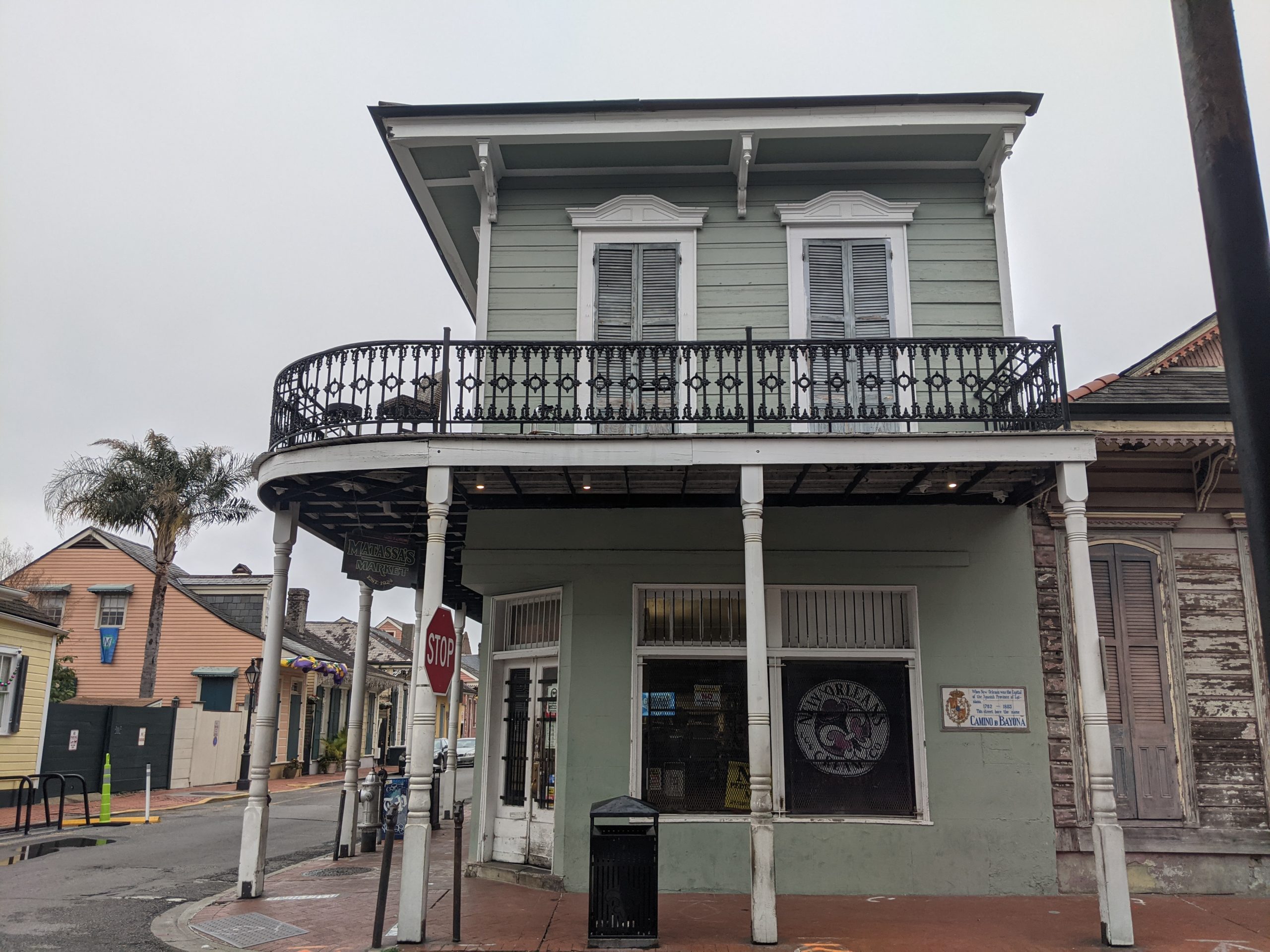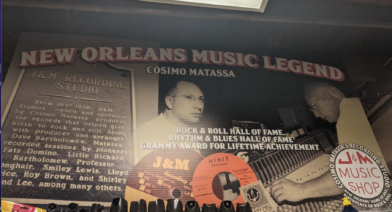Louis Matassa is a familiar face, with a coy but friendly smile proffered any French Quarter resident. At the corner of St. Philip and Dauphine streets, the Matassa’s Market was established by his grandfather (Giovanni “John” Matassa) in 1924, when the community was made up of predominantly Italian families. The elder Matassa started developing businesses, including an appliance shop on Rampart Street that would become his son, Cosimo’s, famous recording studio. Cosimo’s son Louis, has operated the store since his father’s passing in 2014.

A gray day at Matassa’s Market. January 11, 2020, as the store announces it will be closing after 97 years. Photo by Veronika Lee
Sadly, as word spreads fast in a tight-knit community such as New Orleans, Louis has confirmed that after 97 years, Matassa’s Market will be shutting its doors. In 2017, the historic neighborhood market which once operated as a shop with two bars at one time, received a much-needed makeover with the help of business partner Vincent Catalanotto Jr. Prior to the revamp, the corner grocer which offered fresh Italian sandwiches, house supplies and other provisions was struggling with an old store that was in dire need of remodeling and repairs. Louis Matassa speculated that Airbnb rentals had changed the makeup of the neighborhood, making it more tourist-based as opposed to longterm residents who would need the daily staples his market had to offer. After all, the store felt more like a bodega from the film set of Moonstruck than a tourist trap.
As COVID-19 wreaked financial havoc across the city, Matassa’s Market, which also provides neighborhood delivery, was not spared. Louis Matassa remained steadfast throughout the pandemic, running his store daily from 7 a.m. to 7 p.m., still supplying groceries and much-needed beverages to the surrounding community, but also establishing a sense of normalcy for neighbors who enjoyed a chat with a neighbor and a friend in a time of social isolation. Locals young and old have lately been shyly approaching the register as rumors swirled, asking about the shop’s impending closure.
Replying with a half smile behind his mask and raking his fingers through his wavy hair, Mr. Matassa, who has been working in the shop since he was 14, shrugs from behind the plexiglass shield that the pandemic has made necessary. When asked what’s next for the shop, he simply says with a shrug, “I dunno.”

In a corner of the shop, a sign hangs in tribute to the late Cosimo Matassa. By the 1980s, he had joined his sons and concentrated on the family grocery store/deli. Matassa “did the books” in an upstairs office, but he often was sought out by people from around the world to be photographed, filmed and questioned about New Orleans music. Photo by Veronika Lee.





